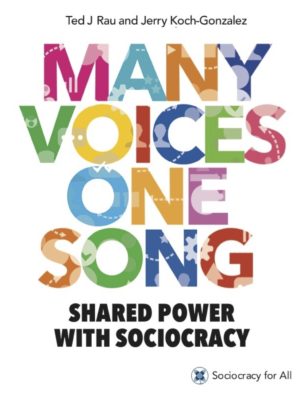Category: History and Philosophy
Understanding the history and theory of both democracy and sociocracy provides a deeper understanding of the principles and practices of what a sociocracy or sociocratic democracy might be, and why. Knowing the intention and development of an idea supports the meaningful application of its principles and practices in everyday life.
Satisfice (a portmanteau of satisfy and suffice) is a decision-making strategy that attempts to meet criteria for adequacy and not to find an ideal solution.
The word satisfice was created by Herbert Simon in 1947. He pointed out that human beings lack the cognitive resources to maximize: we usually do not know the relevant probabilities of outcomes, we can rarely test all outcomes with sufficient precision, and our memories are weak and unreliable. A more… Read More . . . “Satisfice: Satisfying & Sufficient” In another post, I just asserted with no evidence what-so-ever that more than 99% of the world’s population had no knowledge of sociocracy, the world’s most deeply democratic method of governance. Someone might have a method of measuring this but I have a quick way.
When I Googled “sociocracy” in 2002, there were 12 pages listed by Google. Most were repeats of links to Kees Boeke’s essay and to the Sociocratisch Centrum site.
Today, as… Read More . . . “How Many People Know about Sociocracy?” Equality
When I first learned about sociocracy in 2002 I believed that its value was equality.* The counter argument was that equality wasn’t a value, it was a practicality. People work more efficiently when they have an equal voice in their work. Sociocracy is value-free. It is an empty tool that when used by any organization increases its productivity. My first reaction to that was to suggest that the word tool, with its meaning of… Read More . . . “Values and Sociocracy” A great concern of the Global Circle of the international sociocratic certification body is and has for many years been convinced that certification is essential to preserving the core principles and their proper application. In addition to a concern about the principles being misapplied and the method misrepresented, the Global Circle is concerned about “sociocracy” becoming like “democracy” — having no definition and the name being used by anyone inaccurately, even deceptively.
Professional associations are… Read More . . . “The Downside to Standardization” Does anyone believe that there should be a world-wide hierarchy of double-linked sociocratic organizationsThe Delibrative Democracy Consortium (DDC)u is an alliance o...?
There definitely are. They don’t perceive the Big Brother implications of this because of consent and double-linking. If an organization, through its double-links can object to the decisions of the world-wide organization, there is no possibility of establishing a dictatorship or placing limitations on that organization. The implications of this kind of thinking… Read More . . . “Central Authority?” To be a sociocracy, in the same sense that a democracy is a democracy, the principles and methods would have to be adapted to local and national governance. A sociocratic structure would be a radical departure from the way democratic governments are structured today. It might emerge more easily in a country that is just emerging from an autocracy because it could emanate from a single point rather than having to unify several conflicting governance… Read More . . . “Inherent Conflicts in Democracy” 
